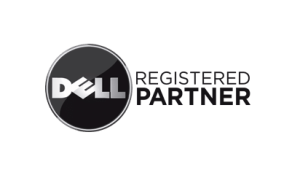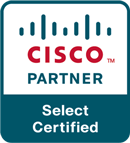Small Business Consulting Web Design and Content Branding & Marketing Business Coaching & Training
Drive Online Visibility and Boost Qualified Traffic


ABOUT US
Get Exeptional Service For Growth
Based in Ridgefield, NJ, we provide expert small business consulting across Bergen County and the NYC metro area, including Englewood, Fort Lee, Hackensack, and Teaneck. With over 15 years of experience, we specialize in e-commerce, marketing, and branding strategies designed to help small businesses grow and thrive.
Our Expertise in Small Business Consulting

E-commerce System Setup
Build and optimize online stores for seamless sales and growth

Operations and Staff Development
Streamline processes and train teams for efficiency

Marketing and Branding Strategies
Craft targeted campaigns to strengthen brand identity

Local and Global Business Growth
Expand your small business with scalable strategies
Whether you’re a small business or a solo enterprise, we’re here to help you succeed. Contact us today to get started!
Expert Small Business Consulting for E-Commerce & Digital Marketing
We help small businesses grow by providing expert consulting in e-commerce and digital marketing. Whether you’re launching an online store, optimizing your website, or running paid ad campaigns, we guide you every step of the way. Our team of experienced project managers and IT specialists ensures your business operates efficiently, stays within budget, and achieves measurable success.
Official Partners




OUR SERVICE
Helping Small Businesses Grow
Small businesses need smart, cost-effective solutions to stay ahead. We offer expert services to help you scale, attract customers, and streamline operations
Marketing & Branding
Boost your brand and get noticed online
- Social Media Management – Grow engagement with strategic content
- SEO Services – Rank higher and drive more traffic
- Content Writing & Blogging – Tell your story and build authority
- Website Development – Professional sites that convert
- Email Marketing – Reach customers with targeted campaigns
- PPC & Digital Ads Management – Maximize ROI with data-driven ads
E-commerce Solutions
Set up, optimize, and grow your online store
- Online Store Setup – Shopify, WooCommerce, or custom solutions
- Product Listings & Optimization – Improve visibility and sales
- Payment & Checkout Integration – Secure and seamless transactions
- E-commerce Marketing – Ads, promotions, and email campaigns
- Order & Inventory Management – Automated tracking for efficiency
Technology & IT Support
Stay secure and ahead of the curve
- Website Maintenance – Fast, reliable, and up to date
- Cybersecurity Consulting – Protect your business from threats
Business & Operations Consulting
Optimize your business for success
- Business Strategy Consulting – Smarter decisions, better results
- Operations & Team Building – Improve workflows and team performance
- HR & Recruiting – Hire and retain top talent
Need a customized solution? Let’s talk. We’re here to help you grow
Would you like any style adjustments or additional details?
Maximize Your Marketing Impact
We don’t just run ads—we build connections. Our marketing strategies are designed to keep your brand top of mind, ensuring customers engage with you across multiple touchpoints. Using the 7-11-4 Principle, we help you create meaningful interactions that turn visitors into loyal customers
How We Use the 7-11-4 Principle
People need to see and engage with your brand multiple times before they trust and buy from you. We make sure that happens by ensuring:
- 7 interactions with your brand across different channels.
- 11 minutes of engagement through valuable content.
- 4 different platforms where your audience discovers you.
By strategically placing your brand in front of potential customers through social media, search engines, and direct engagement, we build trust and recognition.
Our Approach to Marketing
We focus on strategies that don’t just get clicks—they drive real business growth.
- Omnichannel Marketing – We ensure your brand is everywhere your audience is.
- Retargeting & Remarketing – We bring back interested visitors and turn them into customers.
- Brand Storytelling – We craft compelling narratives that make your business stand out.
- Lead Nurturing Campaigns – We guide potential buyers from discovery to conversion.
- Analytics & Performance Tracking – We measure everything to optimize results.
We help you get seen, stay remembered, and build a brand that customers trust. Ready to grow? Let’s make it happen.
Would you like any refinements or additional sections?
What to Expect When Working With Us
- Personalized Strategies – We tailor every plan to your specific business needs.
- Hands-On Support – We work closely with you, providing step-by-step guidance.
- Data-Driven Insights – We use analytics to measure success and refine strategies for better results.
- Scalable Growth – We help you build a business that grows sustainably over time.
Let’s unlock your e-commerce potential together. Contact us today to take your business to the next level!
What We Offer
E-Commerce & Digital Marketing Solutions
We provide practical, results-driven strategies to help you attract more customers and increase sales.
- Web Design & Optimization – We build user-friendly, conversion-focused websites designed to turn visitors into buyers. Example: If your store’s checkout process is too complex, we simplify it for a smoother experience.
- Search Engine Optimization (SEO) – We improve your Google rankings so more people find your business organically. Example: If you’re not showing up in search results, we optimize your site with better keywords and structure.
- Pay-Per-Click Ads (PPC) – We run highly targeted ad campaigns on Google, Facebook, and more to maximize ROI. Example: We analyze which ads drive the most traffic and tweak them for better results.
- Marketplace Setup & Growth – We help you launch and manage stores on platforms like Amazon, eBay, and Shopify. Example: If you’re unsure where to sell, we guide you to the right platform based on your product and audience.
E-Commerce Project Management
Building and running an online business requires careful planning. We make sure your projects are organized, efficient, and successful.
- Project Scope Definition – We define clear goals, deliverables, and key milestones to keep your project focused.
- Strategic Planning & Execution – We create structured timelines and budgets to prevent unnecessary delays and costs.
- Resource & IT Management – We ensure you have the right tools, software, and support to run your business smoothly.
- Progress Monitoring & Adjustments – We track milestones, measure results, and pivot when necessary to improve performance.
- Stakeholder Communication – We provide regular updates to keep you and your team informed on project progress.
- Risk Management & Troubleshooting – We anticipate potential challenges and develop proactive solutions to keep your business running without disruptions.
7-Step Guide to Launching and Marketing Your E-Commerce Store
Small businesses need a strategic approach to succeed in e-commerce. Follow our proven 7-step process to build, launch, and market your online store effectively.
Step 1: Identify Your Niche and Target Audience
- Conduct market research to find profitable gaps.
- Define a unique value proposition to stand out.
- Understand your ideal customers’ needs and preferences.
Step 2: Choose a Domain Name and Hosting Provider
- Select a memorable, brand-aligned domain name.
- Choose a secure, fast, and scalable hosting provider.
- Ensure a seamless and reliable shopping experience. Gizlen Global is a WP engine agency partner.
Step 3: Build Your E-Commerce Store
- Pick the right e-commerce platform (Shopify, WooCommerce, etc.).
- Customize the design for branding and user experience.
- Optimize site navigation for easy product discovery.
Step 4: Add Products and Optimize Descriptions
- Upload high-quality product images.
- Write SEO-optimized, compelling descriptions.
- Highlight key features, benefits, and unique selling points.
Step 5: Set Up Payment and Shipping Options
- Offer secure and flexible payment methods.
- Provide multiple shipping and delivery options.
- Build customer trust with transparent pricing and policies.
Step 6: Promote Your Store
- Use social media, email marketing, and content marketing.
- Implement SEO strategies to improve organic reach.
- Run PPC ads for targeted traffic and sales growth.
Step 7: Analyze and Optimize
- Track key performance metrics using analytics tools.
- Refine marketing strategies based on data insights.
- Continuously improve customer experience and conversions.
Need expert guidance? Our small business consulting services help you navigate every step with confidence. Let’s grow your e-commerce business—contact us today!
Small Business & Solo Business E-Commerce Consulting
Grow your small business or solo venture with expert guidance tailored to your needs. We provide practical strategies and hands-on support to help you succeed in today’s competitive digital marketplace.
How We Help Small Businesses & Solo Entrepreneurs
- Small Business Strategy – Align your goals with market opportunities for long-term growth.
- E-Commerce Operations – Simplify and optimize your online store with efficient systems and tools.
- Platform-Specific Marketing – Use targeted strategies to increase visibility and sales on e-commerce platforms.
What Sets Us Apart
- Operational Efficiency – From product listings to customer service, we help you run a smooth, scalable business.
- Step-by-Step Support – Whether you’re launching or growing, we guide you through every stage of your journey.
Turn your small business into a thriving e-commerce success. Contact us today to get started!
Strategy is about setting yourself apart from the competition. It’s not a matter of being better at what you do – it’s a matter of being different at what you do.
MICHAEL PORTER
If you are not clear about the vision of your organization, Gizlen Global help you understand and clarify what you exactly need.

Single Product vs. Multiple Products
Single vs. Multiple Products: Choosing the Right E-Commerce Approach for Your Small Business
When launching an online store, small businesses and solo entrepreneurs must decide whether to sell a single product or offer a diverse range of products. Each approach has unique advantages and challenges that impact business growth and operations.
Selling a Single Product: Simplicity and Focus
Advantages:
- Streamlined operations with simplified inventory management.
- Easier to maintain consistent quality and brand identity.
- Focused marketing efforts to build a strong, recognizable brand.
Challenges:
- Limited revenue potential by relying on one product.
- Higher risk if market demand declines.
Best For: Small businesses targeting niche markets or selling unique, high-demand products.
Selling Multiple Products: Diversification and Growth
Advantages:
- Attracts a wider customer base.
- Increases revenue opportunities with bundles and complementary products.
- Boosts customer retention and repeat sales.
Challenges:
- More complex inventory, marketing, and fulfillment processes.
- Requires a cohesive strategy to manage diverse products under one brand.
Best For: Businesses looking to scale and serve multiple customer needs.
Key Considerations for Your Decision
Marketing Strategy
- A single-product store allows for a concentrated, powerful brand message.
- A multi-product store requires effective storytelling for each item while maintaining a unified brand.
Pricing Strategy
- Single-product stores can focus on premium pricing and exclusivity.
- Multi-product stores need a tiered pricing strategy for variety and profitability.
Which Approach is Right for Your Small Business?
Your decision depends on your target audience, resources, and long-term goals. Whether you choose simplicity or diversification, we provide expert consulting to help you launch and grow your e-commerce business.
Contact us today for tailored strategies to build your ideal online store.

Customer Acquisition: Single Product vs. Multiple Products
Your approach to acquiring customers depends on whether you sell a single product or offer multiple products. Each model requires a different marketing and sales strategy to attract and retain customers effectively.
Single Product Stores
- Target a niche audience with precise, focused marketing efforts.
- Build strong brand recognition around one product, making it easier to attract and convert ideal customers.
Multiple Product Stores
- Cater to diverse customer segments with varied needs and preferences.
- Create tailored marketing campaigns for each product category while maintaining overall brand consistency.
Making the Right Choice for Your Business
Business Operations
- Single-product stores simplify management.
- Multiple-product stores require more complex operations.
Revenue Potential
- A single product limits revenue streams.
- Multiple products offer diversification and cross-selling opportunities.
Marketing Strategy
- Single-product stores allow focused, streamlined campaigns.
- Multiple products demand segmented marketing and messaging.
Pricing Strategy
- Single products can command premium pricing.
- Multiple products require strategic price positioning across categories.
Customer Acquisition
- Single-product stores attract niche audiences with targeted messaging.
- Multiple-product stores appeal to a broader customer base.
Which Path Will You Choose?
Whether you aim to dominate a niche market with a single product or expand your reach with multiple offerings, we provide expert consulting to help you create the right strategy.
Let us help you design, market, and scale your e-commerce store for success. Contact us today to get started.
Our quality of work crosses into different industries.
We are industry agnostic. We offer our expertise to all businesses that want to be serious players in the market.
We handle your projects.
Our services focus on thinking outside the box and finding how to provide maximum benefits. Simply said, we get things done in time, on budget.
E-COMMERCE SYSTEMS
EFFICIENT AND ROBUST IT SYSTEMS FOR E-COMMERCE AND BEYOND
Products will sell on various platforms, starting with your website.
- Expert Setup of IT Systems
- Shopping Carts - Shopify
- Product Catalog
- Marketplaces - Amazon / eBay
MARKETING OPERATIONS
WE GROW YOUR BRAND AND ACCELERATE SALES
Your business sets a footprint and gives your name a place in the market.
- Business Development
- Brand Management
- International Market Access
- Vendors / Partnerships
BRANDING STRATEGY
COMPREHENSIVE BRAND STRATEGY TO COMPETE IN MARKET
A strong brand identity helps differentiate your business and attract the right audience.
- Market Research
- Product Sourcing (OEM)
- Technical Collaboration
- USPTO Trademarks
Want to cooperate?
Join forces!
We work with freelancers and experts per referral.
"At first, my brand was barely recognized, even though the products were good. After using this branding and marketing service, my brand identity became stronger and more professional. As a result, sales increased significantly within the last three months. Truly satisfied with their strategy!"
Kevin Parker Happy Client
